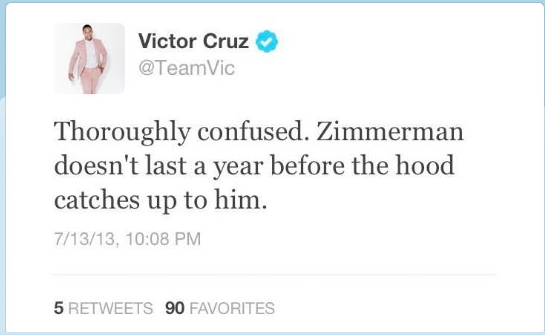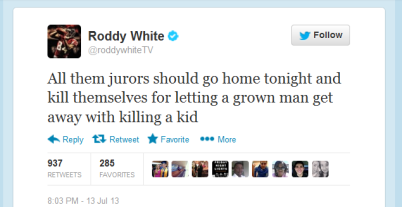After the George Zimmerman not-guilty verdict was announced, two professional football players, NY Giants wide receiver Victor Cruz, and Atlanta Falcons wide receiver Roddy White, vented on Twitter:
Meanwhile, Pittsburgh Steelers offensive lineman, Maurkice Pouncey found himself in hot water after he was photographed last weekend, along with his brother Mike Pouncey, an offensive lineman forthe Miami Dolphins, wearing “Free Hernandez” caps. The “Hernandez” at issue being former New Engalnd Patriots tight end, Aaron Hernandez, who is current being held for trial on charges of first-degree murder
Recognizing that what they say and do online can win or lose tons of fans and $$$, plus impact their respective teams’ image, all three players quickly owned up to their online mistakes (Cruz, White, Pouncey)
 The Employer Handbook Blog
The Employer Handbook Blog





